URBAN STUDIES & SUSTAINABILITY
NSF HBCU-UP TIP Grant: Integrating Data Science into the Urban Studies & Sustainability Curriculum at WSSU

BACKGROUND
Statistics show that women and minorities account for a consequential section of the total U.S. population. According to the U.S. Census Bureau 50.2% of the total 18 to 64 years of age population was female in 2017. Meanwhile, underrepresented groups accounted for 17% Hispanics, 13% blacks and 6% Asians. Census projections show that minorities will account for 56% of the U.S. population by 2060 [1]. However, these populations have been largely absent from fields associated with Urban Studies and Sustainability and have not been exposed to data science. For example, an analysis of urban planners revealed that while African Americans make up 19% of the population they only account for 10% of planners and the numbers are worse for Hispanics who comprise 22% of the population but only account for 6% of planners [2]. Careers in urban studies related fields are increasingly utilizing data to make informative decisions regarding the future health and vitality of communities. As a result, WSSU’s Target Infusion Project titled – Integrating Data Science into the Urban Studies & Sustainability Program (TIP – IDSUSSP) seeks to expose undergraduate students interested in the field of Urban Studies & Sustainability to data science. By combining urban studies and data science, we seek to engage students in new and innovative thinking and techniques that can harness the power of data to improve urban conditions around the globe. Through the use of data, urban studies can help reshape the world’s cities into more sustainable places.
IMPACT
INTELLECTUAL IMPACT
This project explores and designs new techniques for the inclusion of data science materials and knowledge within the Urban Studies and Sustainability curriculum at Winston-Salem State University. The successful implementation of the project will create critical knowledge and infuse cutting edge technologies into new and existing courses at WSSU. The project will further help in advancing the professional growth of the faculty involved, in increasing WSSU’s research capabilities and in enhancing the research and educational experiences of underrepresented minority students. Additionally, the project will equip an Urban Studies Lab on the campus of Winston-Salem State University which will aid in the research and educational opportunities of women, minorities and underrepresented minorities through the exposure to new and innovative technologies. Finally, these efforts will lead to a more thorough investigation of urban issues impacting the Winston-Salem community through the inclusion of data science activities based in the community.


BROADER IMPACT
The project will have broader impacts on education and research through a variety of direct and indirect means including the following: 1) disseminating the resulting methods and tools to the appropriate scientific communities through project website, publications in referred journals, presentations (including student research presentations) at state, national and international conferences, 2) involving undergraduate students to conduct challenging and timely research on an emerging issue that is of growing importance across the country, 3) providing valuable education and research experience to undergraduate students by enhancing the Urban Studies and Sustainability curriculum with revised courses that include data science components and the development of a new course, 4) exposing women, minority, and underrepresented students at a HBCU to data science content and skills related to Urban Studies and Sustainability that may influence their choice about further education and future careers and therefore increasing the size and diversity of the STEM workforce, and 5) enhancing the infrastructure for research and education through the development of the Urban Studies Lab at Winston-Salem State University. Additionally the project will add to the quantitative literacy offerings at WSSU, which are currently lacking..
PROJECT GOALS

GOAL 1
Reshape the Urban Studies and Sustainability (USS) Curriculum at WSSU to include STEM related content.
a. Objective 1 – Infuse data science content and knowledge into two existing urban studies and sustainability courses (IDS 2301 and GEO 4342) through the development of two modules/exercises for each course.
b. Objective 2 – Create a new course (Applied Urban Studies Lab) that combines the use of urban studies and sustainability data and data science techniques.
c. Objective 3 – Establish an Urban Studies and Sustainability Advisory Committee, made up of local and regional professionals in related fields, to provide input and help guide the creation of new courses and modules for existing courses.

GOAL 2
Increase the participation/exposure of women, minority and underrepresented students to STEM infused Urban Studies and Sustainability curricula.
a. Objective 1 – Include STEM content into Urban Studies and Sustainability courses through the development of two modules for IDS 2301 and GEO 4342 and the creation of a new course – Applied Urban Studies Lab.
b. Objective 2 – Recruit up to four (4) undergraduate students from Winston-Salem State University to assist in this project.
c. Objective 3 – Support two (2) undergraduate students’ participation in a national conference each year during the life of the project.
d. Objective 4 – Support four (4) student led research projects related to data science and urban studies and sustainability topics as part of WSSU’s annual undergraduate research forum.
e. Objective 5 – Recruit women and minority/underrepresented students into Urban Studies and Sustainability courses. The students enrolling in Urban Studies and Sustainability courses should mirror that of the general student body at WSSU, with approximately 70% of USS students being women and 84% classified as minority.
f. Objective 6 – Increase the number of minors in the Urban Studies and Sustainability Program as follows:
# of Minors Grant Year
Recruit 10 new minors Year 1
Recruit 10 new minors Year 2

GOAL 3
Establish an Urban Studies Lab in order to give ‘hands on’ educational and research experiences to undergraduate students at Winston-Salem State University.
a. Objective 1 – Purchase lab equipment including: computers, environmental sensors, drone, GPS units, projector and screen.
b. Objective 2 – Integrate Urban Studies Lab based activities into Urban Studies and Sustainability courses through the development of modules and the creation of a new Applied Urban Studies Lab course.
c. Objective 3 – Support four (4) student led research projects related to data science and urban studies and sustainability topics as part of WSSU’s annual undergraduate research forum.

GOAL 4
Improve student learning, satisfaction, and future employment/educational prospects related to their involvement with the redesigned minor and/or coursework in Urban Studies and Sustainability.
a. Objective 1 – Improve student achievement in classes redesigned/created as part of this proposal (i.e. IDS 2301, GEO 4342 and Applied Urban Studies Lab).
b. Objective 2 – Measure students’ level of satisfaction related to the new content/modules developed for redesigned courses and new class (i.e. Applied Urban Studies Lab)
c. Objective 3 – Improve the quality and quantity of student graduates in Urban Studies related professions and graduate schools.
CURRENT FUNDING
$40,000
Undergraduate Research Assistants
$49,222
Lab Equipment
$12,300
Travel to Conferences
PROJECT LEADERS
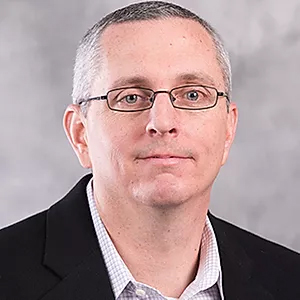
DR. RUSSELL SMITH
PI
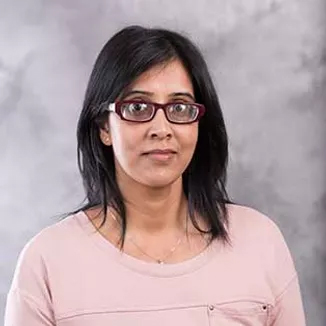
DR. DEBZANI DEB
Co-PI
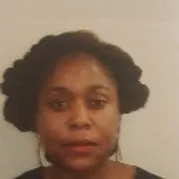
DR. NATION
Evaluator
2020-2021 COHORT
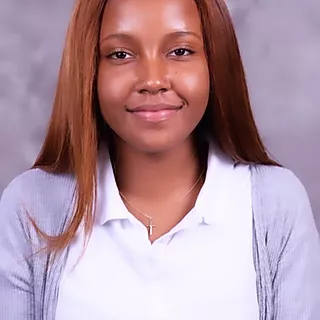
KIARA BATTLE
Research Assistant
Kiara Battle is a sophomore computer science major at Winston-Salem State University where she is a research assistant in the urban data studies department. She would like to expand her knowledge in website development and data analysis.
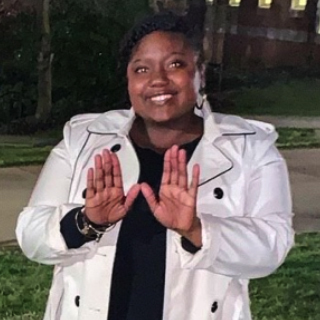
Mya Ellis
Research Assistant
Mya Ellis is a senior, Justice Studies major from Charlotte, NC. She will be graduating in May of 2021, in hopes of attending graduate school for business administration in Master of Human Resources.
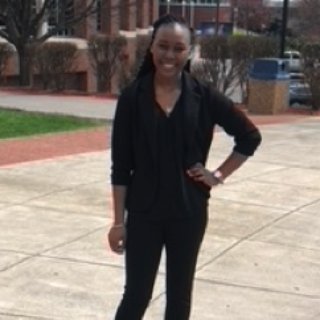
NAKALIA WILLIAMS
Research Assistant
Nakalia V. Williams is a Research Assistant with an NSF funded research project exploring data science and urban studies. She is a Junior, Justice Studies major who would like to expand her knowledge on analyzing data as well as utilizing her skills acquired in Research Methods I.
2019-2020 COHORT

KIARA BATTLE
Research Assistant
Kiara Battle is a sophomore computer science major at Winston-Salem State University where she is a research assistant in the urban data studies department. She would like to expand her knowledge in website development and data analysis.
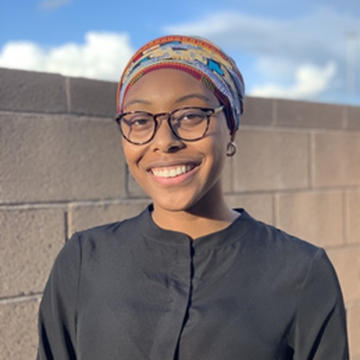
JAZMIN HANKINS
Research Assistant
Jazmin G. Hankins is a research assistant, who helps the Spatial Justice Studio with data entry and database support. As a graduating senior pursuing a bachelor’s in Political Science, Jazmin has channeled her political theory into urban studies and data science.
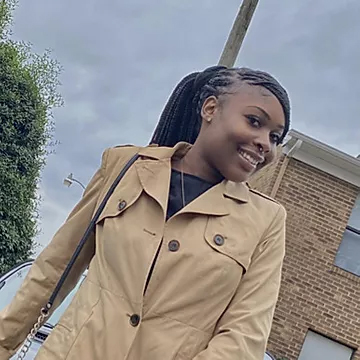
DOMNEISHA FIELDS
Research Assistant
Domneisha Fields is a Research Assistant at Spacial Justice Studios. She is a graduating senior at Winston-Salem State University, pursuing a Bachelors Degree in Interdisciplinary Studies.
RESOURCES
IDS 2301: Introduction to Urban Studies & Sustainability Data Science Modules
EXCELL BASICS
LECTURE 1: Data Science Using Excel
Data Analysis Using Spreadsheets (Worksheet: 100 Points)
EXCELL ADVANCED
Data Analysis Using Spreadsheets – Part 2 (Worksheet: 100 Points)
ACTIVITY 2: Data Analysis Using Spreadsheets – Part 2 (Worksheet: 100 Points)
GEO 4342: GIS Concepts and Techniques Data Science Modules
DOWNLOADING DATA
LECTURE: Data Collection/Retrieval, Extraction/Downloads and Cleaning
TIP Module #2 (GEO 4342)– Data Extraction and Cleanup Activity
PYTHON
LECTURE: Data Science Using Python
PROJECT: Data Exploration and Cleaning
FINAL PROJECT
GEO 4345: Applied Urban Studies Lab
SYLABUS
GEO 4345: Applied Urban Studies Lab
EXERCISES
Exercise 1: Exploring the Basics of Urban Data Analysis
Exercise 2: Simple Water Quality Testing
Exercise 3: Neighborhood Infrastructure Data Mapping
Exercise 4: Develoing a Dashboard
Exercise 5: An Introduction to Community Analyst
Exercise 6: Python Activity – Crime Dataset Questions
PUBLICATIONS AND PRESENTATIONS
University-wide Adoption of Data Science
Debzani Deb, Elva Jones, “University-wide Adoption of Data Science”, SIGCSE ’20: Proceedings of the 51st ACM Technical Symposium on Computer Science Education, March, 2020.
READ MORE
Infusing Data Science Across Disciplines
Debzani Deb, Russell M Smith, Muztaba Fuad, “Infusing Data Science Across Disciplines”, Proceedings of the 2019 ACM Conference on Innovation and Technology in Computer Science Education (ITiCSE), June, 2019, Scotland.
READ MORE
“Integrating Data Science into the Urban Studies & Sustainability Curriculum at Winston-Salem State University: An Early Analysis” — Smith, R.M. and D. Deb, Virtual 2021 HBCU-UP/CREST PI-PD Meeting, February 4-5, 2021
READ MORE
WSSU Undergraduate Research Day Presentation, Department of History, Politics & Social Justice — Ellis, M., N. Williams and K. Battle, April 7, 2021
READ MORE
CONTACT SPATIAL JUSTICE STUDIO
SEND A MESSAGE FOR MORE INFORMATION
OFFICE LOCATION
Winston-Salem, NC 27101
